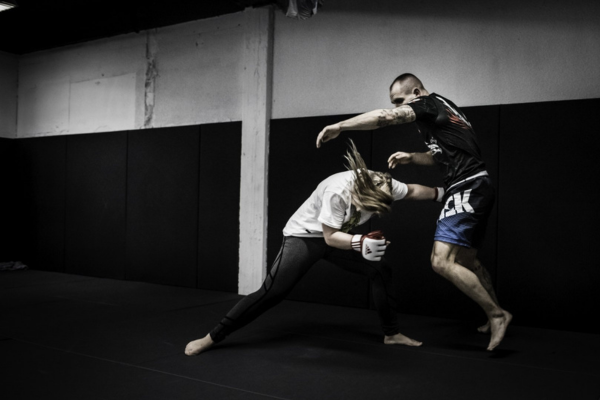The dangers of overtraining in martial arts: Signals and prevention

In combat sports, everything revolves around discipline, perseverance, and progress. Every training session brings you closer to your goals—whether that’s improving your conditioning, technique, or mental strength. But what happens when that dedication turns into overtraining? Overtraining is a common pitfall for many fighters, beginners and advanced alike. It results from too much stress and too little recovery. At Fightstyle, we aim not only to support your performance but also to protect your wellbeing. Training without rest is like punching without defense: eventually, you end up hurting yourself more than anyone else.
The Physical and Mental Dangers of Overtraining

Overtraining often creeps up unnoticed. You want more, better, harder. But without balancing stress and recovery, you undermine the progress you seek. Physically, overtraining can lead to recurring injuries, prolonged muscle soreness, decreased performance, and even hormonal imbalances. Your immune system weakens, making you more susceptible to illness. Often, your body signals exhaustion only when it’s too late.
Mentally, overtraining manifests as sleep problems, lack of focus, and irritability. Motivation wanes for training you once loved, and perhaps most importantly, the joy of the sport fades. Where combat sports usually build strength and confidence, overtraining causes frustration and fatigue. At Fightstyle, we believe mental strength is as crucial as physical fitness—and that starts with listening to your limits.
Signs That Indicate Overtraining
Your body speaks—are you listening? Signs of overtraining can be subtle but almost always present. Persistent fatigue even after rest days, slower recovery, frequent muscle aches, and declining performance are common warnings.
You may also experience restlessness or low energy, restless sleep, or frequent waking. Motivation dips, and frustration during training increases. Physical changes such as muscle loss, increased fat, or constant hunger can also signal overtraining. These are red flags you should never ignore.
Why Combat Sports Athletes Are Especially Prone to Overtraining

Combat sports demand a lot from both body and mind. You combine strength, speed, endurance, and technique in one session. Add sparring, bag work, or strength training, and your body runs at full throttle constantly. The fighter mentality of “always pushing through” means quitting isn’t an option—but that mindset also makes fighters vulnerable to overtraining.
Many fighters train six or seven days a week, often without structured recovery. While your body is strong, it still needs recovery to grow stronger. Especially for serious athletes, balancing rest and training is essential.
Prevention: How to Avoid Overtraining
Prevention is better than cure—this especially applies to overtraining. The foundation is a balanced training schedule. Alternate intense and lighter sessions.
Schedule rest days and treat recovery with the same seriousness as technique training. Active rest days with mobility exercises, light cardio, or yoga help.
Monitoring is another key: track how you feel after workouts, your resting heart rate, sleep quality, and recovery speed. This helps gauge your capacity. Eat well-balanced meals rich in protein, carbs, healthy fats, and micronutrients. Don’t forget hydration—dehydration slows recovery.
Most importantly: be honest with yourself. Skipping a session when your body isn’t ready is not weakness; it’s smart training.
The Role of Nutrition, Sleep, and Mindset
Nutrition and sleep are the foundation of recovery. After intense sessions, your body needs nutrients to repair and grow stronger. Choose meals high in protein, complex carbs, and healthy fats. Ensure 7-8 hours of quality sleep each night.
Mindset also plays a key role. See rest not as a setback but as an investment in progress. The best fighters know breaks are strategic. Fightstyle supports fighters who train smart and recover well, because true growth comes from balanced effort and rest.
Train Smart, Not Just Hard — Choose Sustainable Rhythm
Training to the extreme sounds tough, but rarely leads to lasting success without a smart plan. Build a rhythm that is sustainable, allowing room for growth and rest. Use training planners, work with a coach, set realistic goals. Regularly assess progress and adjust. Your body isn’t a machine—it’s a complex system deserving care.
At Fightstyle, we believe in sustainable growth. We help you become stronger, fitter, and wiser as a fighter—without burning out. Your athletic future depends not on how much you train, but on how well you approach it.
 Nederlands
Nederlands English
English Deutsch
Deutsch Français
Français


Heb jij een praktische manier om je herstel in de gaten te houden, bijvoorbeeld een dagelijkse check-in of meting, die je zou aanraden aan sporters?
Leave a comment